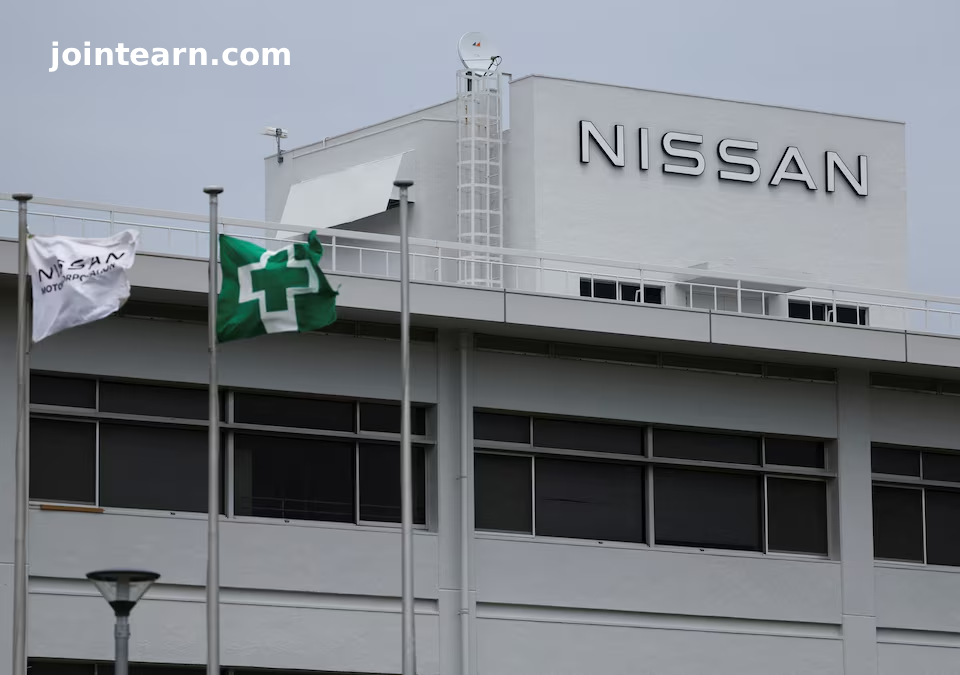
Global Automakers Hit by New Semiconductor Shock
October 29, 2025 (Reuters) — The global automotive industry faces a renewed semiconductor supply crisis as Nissan Motor Co. and Mercedes-Benz Group AG on Wednesday warned of potential production disruptions following an escalating trade conflict between China and the Netherlands over Dutch chipmaker Nexperia.
The dispute, rooted in technology transfer concerns and national security issues, has triggered a ban on Nexperia chip exports from China, threatening to choke off a vital source of components used across vehicle electronics systems.
“It’s not a small issue, it’s a big issue,” said Guillaume Cartier, Nissan’s Chief Performance Officer, during a press briefing at the Japan Mobility Show in Tokyo. “For the moment, we don’t have full visibility.”
China-Netherlands Dispute Deepens Chip Supply Tensions
The standoff stems from the Dutch government’s seizure of control over Nexperia in September, citing security concerns about technology transfers to its Chinese parent company, Wingtech Technology Co. (600745.SS).
In retaliation, China has halted exports of Nexperia’s finished semiconductor products manufactured in its domestic plants. The U.S. has also flagged Wingtech as a potential national security risk, intensifying global trade frictions.
This move adds another layer of strain to the already fragile global chip supply chain, which has been recovering from pandemic-era shortages, U.S. tariffs, and Chinese restrictions on rare earth exports — key materials used in chipmaking.
“It’s becoming increasingly clear how vulnerable the automotive industry remains to geopolitical shocks,” said an analyst at Nomura Research Institute.
Nissan, Mercedes, and the Auto Industry Brace for Impact
Nissan said it is currently secure on semiconductor inventory only until the first week of November, highlighting how quickly production could be affected if alternative supply routes are not found.
Cartier added that while Tier 1 suppliers can provide some visibility into chip stock levels, deeper layers of the supply chain remain opaque, complicating efforts to plan ahead.
Meanwhile, Mercedes-Benz CEO Ola Källenius said the German automaker is now “scouring the world for alternative supply sources”, but admitted it was difficult to forecast how the situation might evolve.
In Brazil, one of the world’s top auto manufacturing hubs, government officials warned that some automakers might halt operations within two to three weeks if the Nexperia impasse is not resolved. The Brazilian government has reportedly contacted Chinese authorities in search of a diplomatic solution.
Broader Implications for the Automotive Semiconductor Market
Semiconductors have become the backbone of modern vehicles, powering everything from engine control systems and infotainment units to driver-assistance technologies. The ongoing chip shortage of 2025 now risks derailing the sector’s recovery and slowing the rollout of electric and autonomous vehicles.
Global automakers have spent billions since 2021 to diversify chip sourcing and strengthen local semiconductor production, yet the latest geopolitical clash exposes how dependent the industry remains on Asia’s chip manufacturing ecosystem.
“The Nexperia issue highlights the global nature of chip vulnerabilities,” said David Dolan, an automotive supply chain expert. “Without cross-border cooperation, the car industry will continue to face cyclical disruptions.”
What Comes Next: Calls for Supply Chain Resilience
Industry analysts say the Nexperia crisis could accelerate efforts by Europe, Japan, and the U.S. to onshore semiconductor production and reduce exposure to Chinese manufacturing dependencies.
The European Union’s Chips Act, Japan’s semiconductor subsidies, and U.S. CHIPS and Science Act have already spurred investments in domestic chip foundries, but ramp-up timelines remain long — meaning the auto industry may face continued volatility through 2026.
As global automakers brace for possible factory slowdowns, the focus now shifts to whether China and the Netherlands can negotiate a compromise — or whether the world’s automotive giants must prepare for another prolonged chip supply crunch.


Leave a Reply